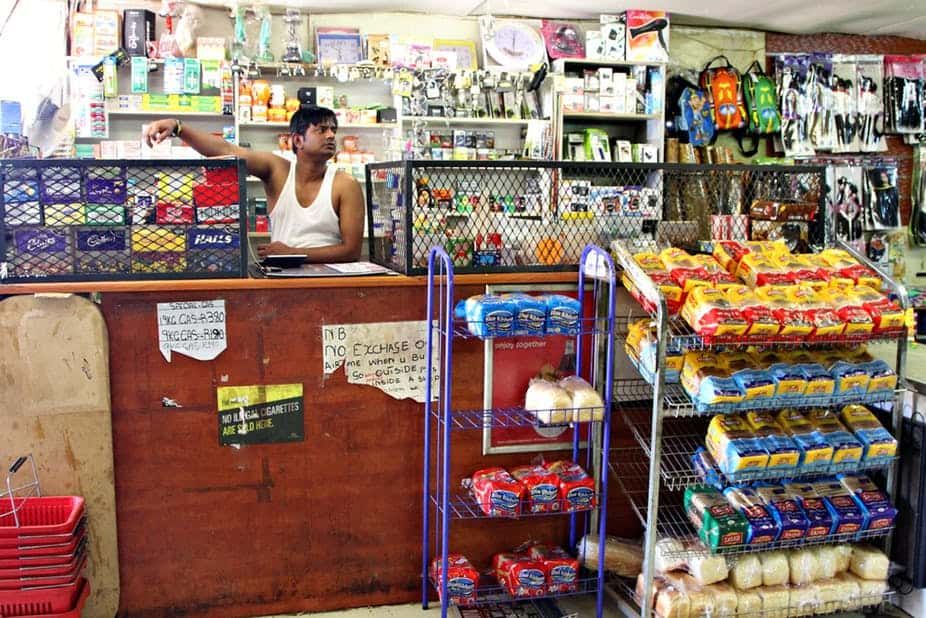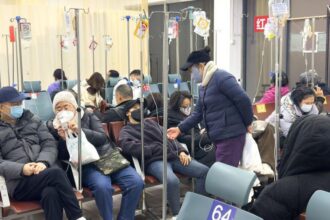In response to recent food poisoning incidents tied to informal businesses, the South African government is pushing forward with legislation that would reserve specific economic sectors exclusively for South African citizens. Small Business Development Minister Stella Ndabeni-Abrahams announced that her department is developing these measures, which aim to protect local consumers and strengthen regulations around small businesses, including spaza shops. This move reflects growing concerns about unregulated businesses, many of which are run by undocumented foreign nationals, sparking social tensions and raising issues about food safety and compliance.
Rising Food Safety Concerns and Social Tensions
The call for legislation follows a series of food poisoning cases across the country. In Mpumalanga, 24 pupils from Enzani Primary School were hospitalized after allegedly eating snacks bought from a local spaza shop. Similar incidents were reported in Soweto, where six students from various schools died after consuming food purchased at informal shops. More recently, 43 pupils from Ngaqa Primary School in KwaZulu-Natal also fell ill after eating snacks from a vendor outside the school premises.
These incidents have prompted the Department of Health to deploy environmental inspectors to investigate the possible causes of the foodborne illnesses. Professor Lise Korsten, a plant health and food safety expert from the University of Pretoria, emphasised the need for heightened awareness around food safety and stricter regulations. “A quick search revealed that over 200 cases of food poisoning have been reported in Gauteng in 2024 alone, associated with improper food handling by informal shops or traders,” said Korsten. She also noted that even a few incidents are far too many and underscored the importance of registering and inspecting small businesses to ensure they meet food safety standards.
Government and Public Figures Demand Action
Minister in the Presidency Khumbudzo Ntshavheni recently called on South Africans to reconsider their patronage of informal shops that lack transparency about their product sources. “We must take a decision as a society that we are not buying at spaza shops where we are not sure where they are buying their products,” she said. Ntshavheni also urged consumers to request proof of registration when making purchases at these businesses.
Adding to the dialogue, Gauteng Economic Development MEC Lebogang Maile voiced a strong stance against undocumented immigrants, urging illegal traders to exit the country. “Illegal people must go! The laws of the country must be adhered to,” Maile stated in a recent interview. He emphasized the role of police and Home Affairs in enforcing immigration laws to ease tensions in local communities, especially in townships.
Proposed Legislation and Its Implications
The proposed legislation is intended to protect specific economic sectors, prioritising South Africans’ role in these industries. While spaza shops have become a focal point, the government’s concerns extend to other sectors, where undocumented foreign nationals operate without proper regulation. President Cyril Ramaphosa has voiced concern over the employment of undocumented foreign workers, which he says contributes to societal discord. The Department of Home Affairs reports that between 15,000 to 20,000 undocumented foreigners are deported annually, but the estimated number of illegal immigrants ranges between five and 13 million, suggesting significant gaps in enforcement.
The new legislative push aligns with the government’s objectives of economic growth, social stability, and compliance with immigration laws. By reserving specific sectors for South Africans, officials aim to support local businesses, reduce health risks, and address social tensions tied to undocumented foreign nationals operating informally.
Food Safety as a Priority
Professor Korsten highlighted that food safety in informal retail is a public health priority. She stressed the need for South Africans to be cautious and for policymakers to implement regulations that safeguard consumers. “Food safety needs to be a priority with increased public awareness regarding the purchase and consumption of food products,” she noted. The introduction of environmental inspectors by the Department of Health marks a proactive step toward identifying and addressing potential health risks in informal trade.
As the government prepares to roll out this legislation, the public is being urged to support compliant local businesses and prioritize food safety when purchasing products from informal shops. These measures aim to address both the immediate public health risks and the broader social and economic concerns related to unregulated foreign-owned businesses in South Africa.












